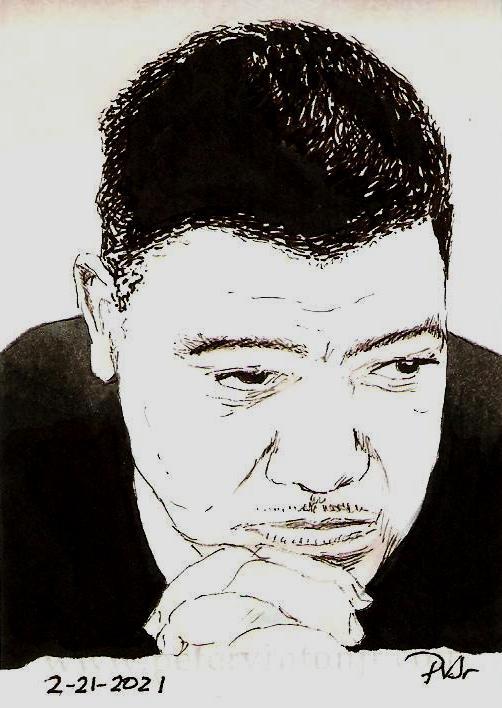
An ongoing illustrative history study
This piece originally posted 5/29/2021
Prelude | 84 | 85 | 86 | 87 | 88 | 89 | 90 | 91 | 92 | Email |
|---|
"It is better to be prepared for an opportunity and not have one than to have an opportunity and not be prepared."
Whitney M. Young, Jr. was born in 1921 Kentucky and grew up with an eye towards a career in medicine, however after serving in the Army during WWII, he pivoted to social work and civil rights. Apocryphally, while training with the Army, Young was reportedly assigned to a road construction crew of black soldiers being supervised by white officers, having been promoted from private to first sergeant. Young discovered a latent talent for mediation --helping to defuse tensions between his white officers and black soldiers angry at their poor treatment. After the war he spent 3 years as a member of the Urban League of St. Paul, Minn., he then became that organization's executive secretary in 1950. He was named Dean of the School of Social Work of Atlanta (Georgia) University in 1954.
Perhaps most significantly, however, was Young's ten years as head of the National Urban League (1961-71), at the time the world's largest social-civil rights organization, when he pushed for equal opportunities for Blacks in both industry and in government. His advocacy of what was popularly referred to as a "Domestic Marshall Plan" --massive funds to help solve America's racial problems-- is widely regarded to have influenced early federal poverty programs in the 1960's. Young enjoyed a reputation as a national figure who could bridge the gap between white political and business leaders and poor blacks and militants.
Young was regularly consulted by Presidents Kennedy, Johnson, and Nixon on racial matters throughout the 1960's. Johnson in particular considered naming Young to his Cabinet as Secretary of Housing and Urban Development, but could not reconcile this with Young's opposition to the war in Vietnam. As part of the FBI's notorious COINTELPRO operations against the Black liberation movement, a conspiracy to murder Young was uncovered in 1968; police infiltrators who had concocted this scheme had intended to frame it in the press as a Black "revolutionary" plot.
"First of all, I think the country is in deep trouble. We, as a country have blazed unimagined trails technologically and industrially. We have not yet begun to pioneer in those things that are human and social... I think that social work is uniquely equipped to play a major role in this social and human renaissance of our society, which will, if successful, lead to its survival, and if it is unsuccessful, will lead to its justifiable death."
--from a speech by Young to the National Association of Social Workers (NASW) in May 1969
Next page - Lesson 89: Frankie Muse Freeman